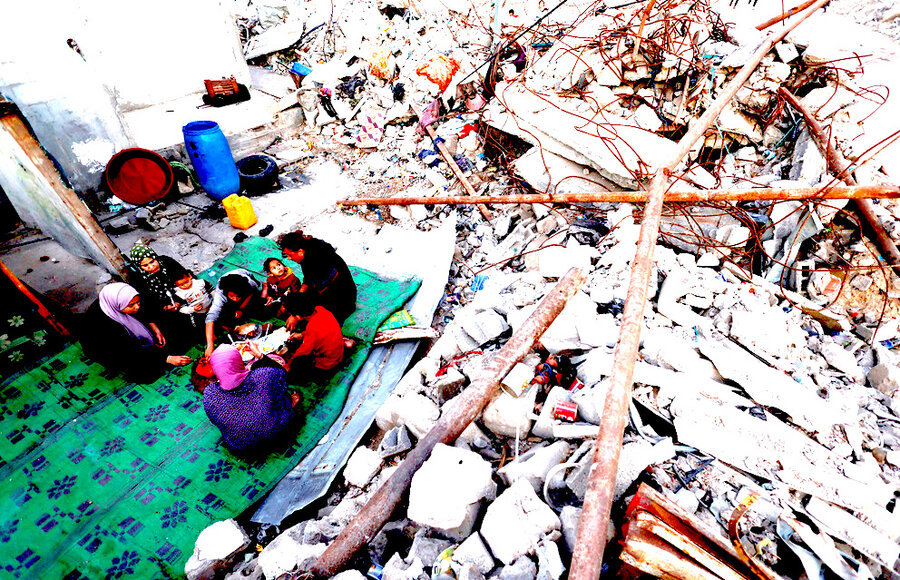Drawing lines of peace in Gaza
Facing an American demand to “put civilians first” even as it rids Gaza of Hamas fighters, Israel announced Wednesday that it would follow that core principle of the rules of war in a particularly difficult choice. Palestinian civilians in Rafah – perhaps all 1.4 million of them – would be moved out of harm’s way before Israel launches major assaults on Hamas sites in the besieged city. The civilians would be settled in “humanitarian islands,” or guarded encampments of tents across southern Gaza.
In the history of modern warfare, negotiating such a deal to protect the innocent and ensure them aid is never easy. It requires those who uphold international law to take a principled stand. “Humanitarian actors are bound to abide by principles that are not negotiable,” said Claude Bruderlein, a former longtime negotiator on the front lines of conflicts for the International Committee of the Red Cross.
Those principles include an impartial commitment to the welfare of people who are not party to a war. A negotiator’s neutrality along with sincere interest in saving war-trapped civilians can build enough trust to allow the creation of a safe zone or a “humanitarian corridor.” If the parties to a war can agree on meeting the needs of the innocent, that shared interest opens a door for the tougher task of political negotiations.
Why do the innocent in a conflict so often evoke empathy from belligerents? U.S. Secretary of State Antony Blinken addressed that question in a recent press conference as he negotiated protections for the people in Gaza while supporting Israel’s right to protect itself.
“The overwhelming majority of people in Gaza had nothing to do with the attacks of October 7th, and the families in Gaza whose survival depends on deliveries of aid from Israel are just like our families,” he said. “They’re mothers and fathers, sons and daughters – want to earn a decent living, send their kids to school, have a normal life. That’s who they are; that’s what they want. ... We cannot, we must not lose sight of our common humanity.”
Israel’s goal of ending a military threat from Hamas can be met even as humanitarian law is upheld. For Israelis, their security is not negotiable. For innocent Palestinians as well, their protection from harm and access to humanitarian aid are not negotiable under international law. “There is no transaction about principles,” explained Mr. Bruderlein, the former front-line negotiator. On both sides, innocence can win.





